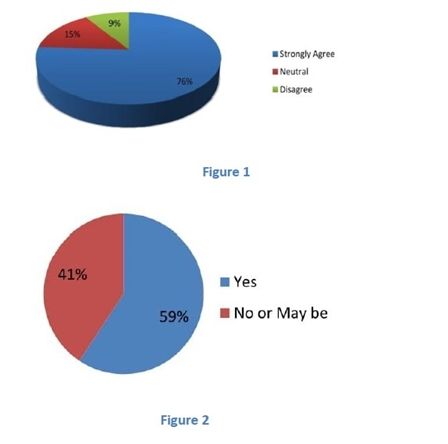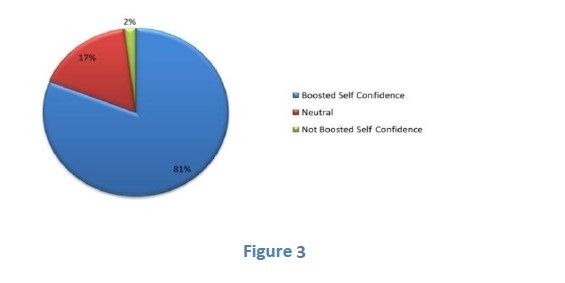Abstract
Undergraduate students’ participation in research projects is believed to encourage them to pursue higher education in chemistry and establish their career as Chemical scientists or academicians in chemistry. The philosophy of research at undergraduate level empowers students through “hands-on-experiments”. The challenges faced by students while carrying research are very different from their classroom issues. This article discusses the various aspects of higher education in Chemistry based on the data collected from the students in their final year of undergraduate studies and postgraduate courses from the Department of Chemistry, Guru Nanak Dev University, Amritsar.
Benefits of Undergraduate Research Work
Undergraduate research offers numerous benefits to the students. They get an opportunity to learn various concepts by using highly sophisticated and modern instruments which are difficult to understand by just going through theoretical concepts. Undergraduate students joining research group of some faculty also get a chance to interact with other graduate students in that lab. It also gives clarity to the students regarding their career.
There are many courses at undergraduate level in Chemistry which, if done along with hands-on experience, can help in better understanding of the related concepts. Figure 1 displays the students’ views on whether they can effectively perform in science courses without undertaking any lab/project work. Over 75% students who have not carried out research project think that they cannot do well in chemistry. Students those who have carried out research projects believe that hands-on-learning is important to do well in science.
Undergraduate research plays an important role in helping students chose an appropriate career path. Students were asked if they have plans to continue their education beyond their undergraduate degree (Figure 2) and around 41% of students, who have not carried any research project, are either not sure about their higher education goals or do not want to continue their education in chemistry. 85% of students, who have carried out a research project in undergraduate degree, are sure that will go for higher education especially in Chemistry.

Confidence is the act of trusting yourself. During a job interview or PhD. placement, showing that you trust yourself is critical because it can lead your interviewer to trust in you, as well. 81% of postgraduate students who have carried out research projects are more confident as compared to students who have not undertaken any research work during their under graduate studies.

Challenges in Undergraduate Research
Time is a serious limitation of research at undergraduate level. Students at undergraduate level are expected to attend a number of courses and hence making it difficult to find enough time to carry any meaningful research. For me, as an undergraduate research student, finding time for working in a synthetic organic chemistry lab was very difficult, a number of reactions are not successful in first attempt. A number of time procedures have to be modified which requires a lot of literature survey to find an appropriate procedure. With an extremely busy scheduled packed with a number of classes and labs I was unable to get enough time to visit my research lab regularly, which at times lead to degradation of products.
It is very difficult to motivate undergraduate students to get genuinely interested in doing research work. Views from some undergraduate students pursuing research projects revealed that they are involved in research projects just to get a “LETTER OF RECOMMENDATION” or “CERTIFICATE OF INTERNSHIP”. There are very few students who are doing research projects because of interest in the subject. A number of students involved in research activities get demotivated easily and avoid going to lab if they face hurdles during any part of research. Here the faculty advisor plays an important role of keeping their undergraduate research students motivated. Undergraduate research work lacks adequate rewards. Undergraduate students are not provided any fellowship for performing research work. At times they are also excluded from the list of contributing authors in the research publication. A reward in the form of a funding or in the form of a research publication is very important to attract more undergraduate students at research level.
Solutions to Overcome Challenges
I believe that rather than allotting PhD students to the undergraduate students, faculty mentors should try to directly involved in research projects with undergraduate students and spend quality time with students. This will provide a moral support to the students. For a project in organic synthesis, it is hard to complete a multi step synthesis in short period of time. I myself being involved in synthesis of biologically active organic molecules was unable to complete seven step syntheses after five continuous month of lab work. A partial solution to this could be that faculty should be positive towards including undergraduate students in their research lab as early as they approach them and the students must work in a collaborative manner to complete the targets as early as possible.
Research projects should be pre-defined before the students join the lab. The research targets should be realistic and proper resources should be made available for successful completion of the project. Project should be designed in a manner that unsuccessful results should also provide opportunity to students to learn something new. Higher education institutes should value the culture of undergraduate research by setting up a council or a committee to look after the whole process. In addition the time devoted for undergraduate research by faculty must be considered as teaching load to decrease the overall works load on them.
As a reward to the Undergraduate researchers National/International conferences primarily for Undergraduate students should be started at University level along with which a “Journal of Undergraduate Findings” must be initiated to allow the undergraduate students to publish their research findings.
Worldwide Scenario
Various approaches have been listed by a number of authors for boosting research at undergraduate level. Some of the interesting approaches include stand alone approach, attachment approach and/or inserted approach. Universities like Harvard and Stanford, follow a concerted approach to encourage undergraduate students to get involve in research activities by various means including undergraduate research associations, symposium / conference / workshops for undergraduate Research, an undergraduate Research Journal(s) and much more.
Foreign universities offer various rewards to undergraduate students pursuing research such as academic credits, scholarships, student wages etc. Additionally, in the countries like US, council of Undergraduate research is set up to support undergraduate research at higher education institutes.
Conclusion
From the survey conducted, it is clear that research at early years of one’s academic life is very important for creating interest and in depth understanding of the subject. Moreover it provides clarity of career path and builds self confidence which is essential to excel. I hope that this article has put some light on challenges and their solutions faced in incorporating research at undergraduate level. The purpose of this article is not only limited to discuss the aspects of undergraduate research but also motivating the students, faculty and the administration to establish such a council to implement this project and improve the higher education in India. Further work on this article can be done by involving various other state universities in this survey so that their limitations can be understood which can further help in drafting such policies which promotes undergraduate research in HEIs.
References
- Web-Based survey conducted is available on the link https://forms.gle/4gi1UHz6HGSFHCb76
- https://www.grinnell.edu/sites/default/files/documents/PreflectionSurveyCopy.pdf
- https://www.grinnell.edu/sites/default/files/documents/SURE%20III%20survey%20copy.pdf
- https://files.eric.ed.gov/fulltext/ED509729.pdf
- J. Chem. Educ. 2020, 97, 9, 3463–3469
- https://www.cur.org/assets/1/23/COEUR_final.pdf
- J. Chem. Educ. 2006, 83, 12, 1744
- J. Chem. Educ. 1983, 60, 8, 670
- Wang, S. et al. Preprint at ChemRxiv
- https://doi.org/10.26434/chemrxiv.7824707.v2 (2019)
- Galeano, N., Morales-Mendez, R., Cantú, F. A “Developing Research Skills in Undergraduate Students through an Internship”